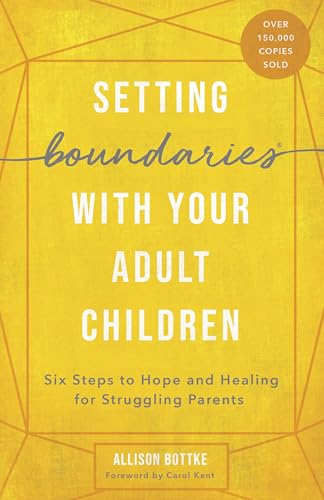Exploring the ups and downs of parent-child relationships takes time, patience, and a clear path from conflict to trust. Understanding family dynamics, like communication styles and cultural influences, sets the stage. Effective communication, through active listening and empathy, lays a strong foundation for resolving conflicts. Trust blossoms when respect, validation, and clear boundaries are nurtured. Strategies like problem-solving and seeking help when needed are crucial. By fostering open dialogue, sharing activities, and prioritizing quality time, parent-child relationships can thrive. Embrace these steps to transform challenges into opportunities for growth and tighter family bonds.
Key Takeaways
- Practice active listening and validate feelings to resolve conflicts effectively.
- Set clear boundaries and encourage open communication for trust-building.
- Engage in shared activities to nurture trust and create lasting memories.
- Seek professional help when needed to improve communication and conflict resolution.
- Foster understanding through open dialogue without blame to strengthen relationships.

Between Parent and Child: Revised and Updated: The Bestselling Classic That Revolutionized Parent-Child Communication
As an affiliate, we earn on qualifying purchases.
As an affiliate, we earn on qualifying purchases.
Understanding Family Dynamics
Understanding family dynamics is essential for managing relationships and resolving conflicts effectively. Within the parent-child relationship, family dynamics play a pivotal role in shaping communication skills, addressing conflicts, and establishing a strong family culture.
By delving into the intricacies of how family members interact, the power structures at play, and the emotional connections that bind them, one can gain valuable insights into why certain conflicts arise and how they can be resolved.
Each family has its unique dynamics influenced by cultural backgrounds, social environments, and individual personalities. These dynamics not only impact how conflicts manifest but also influence the ways in which they're addressed and ultimately resolved.

Blue Orange Where’s Squeaky Fun Interactive Preschool and Children Game – Educational Hide-and-Seek Mouse Game Games – 2 to 10 Players for Ages 4+
HIDE AND SEEK GAME: This adorable little mouse makes sounds when someone hides her, low at first, then…
As an affiliate, we earn on qualifying purchases.
As an affiliate, we earn on qualifying purchases.
Importance of Effective Communication

Effective communication is vital in strengthening relationships and resolving conflicts between parents and children.
By actively listening, sharing feelings without blame, and practicing empathy, we can create a safe space for open dialogue.
Using techniques like 'I statements' and mutual problem-solving can foster understanding and trust, leading to healthier interactions.
Clear Communication Boundaries
Establishing clear communication boundaries is essential for fostering healthy and respectful relationships between parents and children. By setting these boundaries, misunderstandings and conflicts can be avoided, leading to more positive interactions and stronger connections.
When dealing with parent-child conflicts, it's vital to promote open communication through the use of 'I statements.' These statements help convey thoughts and feelings without blame, encouraging a non-confrontational approach to resolving conflicts.
Clear communication boundaries not only establish respect but also build trust between parents and children. They provide a framework for handling discussions and disagreements in a constructive manner. By defining these boundaries, both parties can feel heard and understood, fostering a sense of mutual respect and understanding.
In essence, establishing communication boundaries is a fundamental step in improving parent-child relationships. It lays the foundation for effective communication, which is key to resolving conflicts and nurturing a harmonious and trusting bond between parents and children.
Active Listening Techniques
Engaging in active listening techniques is essential for fostering meaningful communication and strengthening parent-child relationships. Active listening goes beyond just hearing words; it involves fully immersing ourselves in the conversation, understanding the emotions behind the words, responding thoughtfully, and remembering what was shared.
By actively listening to our children, we show them that their thoughts and feelings are valued, which builds trust and respect in the relationship. Through active listening, we can gain a deeper understanding of our children's perspectives and emotions, fostering empathy and connection.
Practicing active listening techniques not only enhances communication but also plays a significant role in conflict resolution. When we listen actively, we can better identify the root causes of conflicts, address underlying emotions, and work towards solutions collaboratively.
This approach leads to more effective problem-solving and paves the way for healthier parent-child dynamics built on trust, empathy, and mutual understanding.

Setting Boundaries with Your Adult Children: Six Steps to Hope and Healing for Struggling Parents
As an affiliate, we earn on qualifying purchases.
As an affiliate, we earn on qualifying purchases.
Fostering Trust in Relationships

Building trust in relationships involves fostering mutual respect and open communication channels. By actively listening, validating feelings, and showing care during conflicts, we can strengthen the bond between parents and children.
Assuring children of their lovability and guiding them through challenges with support are key steps in building trust.
Building Mutual Respect
To foster trust in parent-child relationships, it is essential to cultivate mutual respect through open communication, active listening, and validation of each other's emotions. Building mutual respect involves setting clear boundaries that help your child understand expectations and feel secure. It is important to keep your child engaged in conversations, making them feel heard and valued. By showing care and support during conflicts, you demonstrate empathy and strengthen the bond of trust. Encouraging open sharing of thoughts and feelings creates a safe space for honest communication. Prioritizing quality time together, understanding your child's perspective, and showing compassion in all interactions further solidifies the foundation of mutual respect. By guiding your child through challenges with consideration and resolving conflicts calmly, you instill a sense of trust and security in the relationship.
| Building Mutual Respect | |
|---|---|
| Setting clear boundaries | |
| Keeping your child engaged | |
| Making your child feel heard | |
| Showing care and support during conflicts |
Open Communication Channels
Let's explore how fostering open communication channels in parent-child relationships leads to increased trust and understanding.
When parents and children create an environment where thoughts and emotions can be shared openly, it paves the way for building trust and resolving conflicts effectively. By encouraging open communication, both parties can express their feelings and needs without fear of judgment, fostering a sense of safety and acceptance.
Vital listening and validating each other's emotions play a significant role in creating a supportive space for honest conversations. Through open communication, parents and children can work together to address issues, strengthen their bond, and navigate challenges as a team.
This process not only helps in resolving conflicts but also promotes a positive and harmonious relationship between parents and children. By nurturing open communication channels, trust is built, misunderstandings are reduced, and the foundation for a healthy and trusting parent-child relationship is established.

The Essential Family Therapy Workbook: Exercises to Improve Communication, Resolve Conflict, and Build Connection
As an affiliate, we earn on qualifying purchases.
As an affiliate, we earn on qualifying purchases.
Strategies for Resolving Conflicts

Effective conflict resolution in parent-child relationships involves utilizing active listening, validating feelings, and setting clear boundaries. By practicing open communication, problem-solving skills, and active listening, you can navigate conflicts with empathy and understanding.
Encouraging a supportive environment where different perspectives are respected can also help in resolving disagreements effectively. Remember, seeking professional help when needed isn't a sign of weakness but a valuable resource for guidance and support.
When conflicts arise, take the time to listen actively to your child's perspective, validate their feelings, and communicate your own thoughts calmly and clearly. Teaching problem-solving skills can empower both you and your child to work through issues together.
If conflicts persist or feel overwhelming, seeking assistance from a counselor or therapist can offer new insights and strategies for resolving conflicts constructively.
Building Strong Bonds

When it comes to building strong bonds with our children, trust is nurtured through communication.
By engaging in shared activities, we create lasting memories and strengthen our connection.
Openness fosters understanding, laying the foundation for a deep and meaningful relationship with our children.
Trust Through Communication
Communication that builds trust between parents and children is rooted in open dialogue and active listening. Encouraging a safe space for sharing feelings and perspectives without blame enhances understanding and connection. Using 'I statements' promotes respectful communication, validating emotions and fostering empathy.
Calm and collected conversations provide a foundation for resolving conflicts and strengthening relationships. By actively listening to each other, parents and children can create a supportive environment where trust can flourish. Honest and transparent communication helps in building strong bonds based on mutual respect and understanding.
Through effective communication, conflicts can be addressed constructively, leading to improved relationships and increased trust. Remember, open conversations and genuine listening are key components in nurturing trust and deepening the parent-child connection.
Shared Activities Strengthen
Engaging in shared activities is a powerful way to strengthen the bond between parents and children. When parents and children participate in activities like playing games, doing crafts, or going on outings together, they not only have fun but also foster positive communication and create lasting memories.
These shared experiences promote teamwork, cooperation, and mutual understanding within the parent-child bond. By engaging in activities together, parents and children have the opportunity to connect on a deeper level, building trust and forming strong, lasting relationships.
Quality time spent engaging in shared activities is essential for nurturing the parent-child bond and creating a sense of togetherness. Remember, these activities aren't just about having fun; they're about building a foundation of trust, communication, and teamwork that will strengthen the relationship between parents and children for years to come.
Openness Fosters Understanding
Fostering strong bonds between parents and children requires prioritizing openness to promote understanding and trust within the relationship.
When we engage in open communication, sharing our feelings in a non-blaming manner, we create a safe space for honest expression. By practicing active listening skills, we show our children that their thoughts and emotions are valued, leading to mutual understanding.
Additionally, when we participate in mutual problem-solving, we encourage collaboration and reinforce the idea that challenges can be overcome together.
Prioritizing the cultivation of an environment of loving, compassionate, and nonviolent communication is crucial to enhancing parent-child interactions positively. By incorporating these elements into our interactions, we can build a foundation of trust and empathy, strengthening our bond with our children.
Repairing Ruptures and Misunderstandings

Acknowledging and addressing the underlying issues causing conflict is vital when repairing ruptures and misunderstandings in parent-child relationships. When conflicts arise between children and parents, it's essential to engage in effective conflict resolution techniques like active listening, empathy, and open communication.
By encouraging the open sharing of feelings and perspectives, a safe space is created for resolving conflicts and rebuilding trust. Addressing past conflicts and traumas can also play a pivotal role in repairing ruptures and misunderstandings in parent-child relationships.
Building trust through honest communication and mutual understanding is fundamental for repairing ruptures and enhancing parent-child relationships. Remember, it takes effort from both parties to mend these ruptures, but with patience, understanding, and a willingness to listen and communicate openly, the bond between parents and children can be strengthened, leading to a more harmonious and trusting relationship.
Promoting Positive Communication

Positive communication in parent-child relationships fosters understanding and trust through sharing feelings in a non-blaming manner. To promote positive communication and nurture a healthy relationship, consider the following key points:
- Use 'I statements': Express feelings and thoughts using 'I feel' or 'I think' to convey personal experiences without assigning blame.
- Practice calm communication: Maintaining a composed demeanor during discussions helps children grasp boundaries and encourages respectful interactions.
- Encourage active listening: Foster engagement by prompting children to listen attentively and respond thoughtfully, strengthening the parent-child bond.
- Address feelings in conflicts: Acknowledge emotions and work through disagreements together to establish a foundation of loving and compassionate communication.
Active Listening and Empathy

In nurturing parent-child relationships, actively listening and showing empathy are key components for fostering understanding and trust. Active listening involves giving your full attention to what your child is saying without interruptions, allowing you to truly comprehend their perspective. Empathy, on the other hand, means not only understanding but also sharing in your child's emotions, creating a deeper connection and sense of validation.
| Active Listening | Empathy |
|---|---|
| Concentrating fully on what your child says | Understanding and sharing their feelings |
| Promotes deeper understanding and connection | Helps diffuse conflicts and build trust |
| Leads to more effective conflict resolution | Improves relationships |
Creating a Harmonious Environment

Establishing a harmonious environment within the home is essential for fostering positive parent-child relationships. To create a peaceful atmosphere where trust and understanding can thrive, consider the following:
- Conflict Resolution: Addressing disagreements calmly and finding solutions together is key to maintaining harmony.
- Effective Communication: Openly expressing thoughts and feelings while actively listening to one another promotes understanding and connection.
- Quality Time: Spending meaningful moments together, engaging in activities you both enjoy, strengthens the bond between parent and child.
- Open Dialogue: Encouraging honest conversations and respecting each other's perspectives fosters a safe space for communication and problem-solving.
Thriving Parent-Child Relationships

Building trust and fostering security in parent-child relationships is essential for their flourishing. Genevieve Simperingham emphasizes the significance of creating a safe environment where open communication and understanding can thrive between parents and children.
It's vital for parents to demonstrate care, concern, love, and support, especially during conflicts, to strengthen the family bond. Assuring children of their goodness and lovability helps in nurturing a positive and trusting relationship.
Effective conflict resolution skills and knowing when to seek help are key in building a strong parent-child relationship based on trust and collaboration. By prioritizing the well-being and emotional security of the child, parents can navigate conflicts and challenges within the family with empathy and understanding.
Frequently Asked Questions
How to Resolve Conflict Between Parent and Child?
When sorting out conflicts between parents and children, it's important to listen actively, set clear boundaries, and teach problem-solving skills.
Seeking professional help when necessary can be beneficial.
Conflict can affect children's emotional well-being, self-esteem, and relationships.
Spending quality time, showing love, and fostering open communication are essential for building a strong parent-child bond.
Understanding your child's perspective, embracing compromise, setting limits, creating a safe space for conversation, and being a good role model are key in resolving conflicts.
How Can Trust Between Children and Parents Be Built Problem and Solution?
Building trust between children and parents requires consistent communication, active listening, and mutual respect. Creating a safe environment where kids feel valued and understood is essential.
Encouraging positive interactions, showing love, and validating feelings strengthen bonds. Setting clear boundaries, being empathetic, and handling conflicts carefully are imperative.
Trust grows through reliability and respecting children's perspectives and emotions. Embrace openness, empathy, and patience to forge a strong parent-child relationship based on trust.
How Do You Build Trust in a Parent Child Relationship?
In building trust in a parent-child relationship, we focus on active listening, validating feelings, and setting clear boundaries.
It's essential to show care, concern, love, and support during conflicts to nurture trust. Reassuring the child of their goodness and lovability is key.
Encouraging open sharing, seeking support, and guiding through challenges with care strengthen trust.
Creating a secure, safe space where kids feel supported in taking on responsibilities fosters trust in the parent-child bond.
What Is the Best Way to Help Children With Conflict Resolution?
When helping children with conflict resolution, an essential approach involves teaching positive communication skills and active listening.
By encouraging empathy, understanding, and validation of feelings, we can guide children to navigate conflicts effectively.
Creating a safe space for open conversation empowers kids to express their thoughts and emotions.
Providing opportunities for compromise, negotiation, and setting clear boundaries supports children in resolving conflicts in a healthy and constructive manner.
Conclusion
As we navigate the ups and downs of parent-child relationships, remember that conflict can lead to trust when addressed with patience and understanding.
By fostering open communication, active listening, and empathy, we can build strong bonds that withstand any storm.
Through promoting positive interactions and creating a harmonious environment, we can thrive in our relationships and create lasting memories together.
Trust the process, embrace the journey, and watch as your relationships flourish before your eyes.









